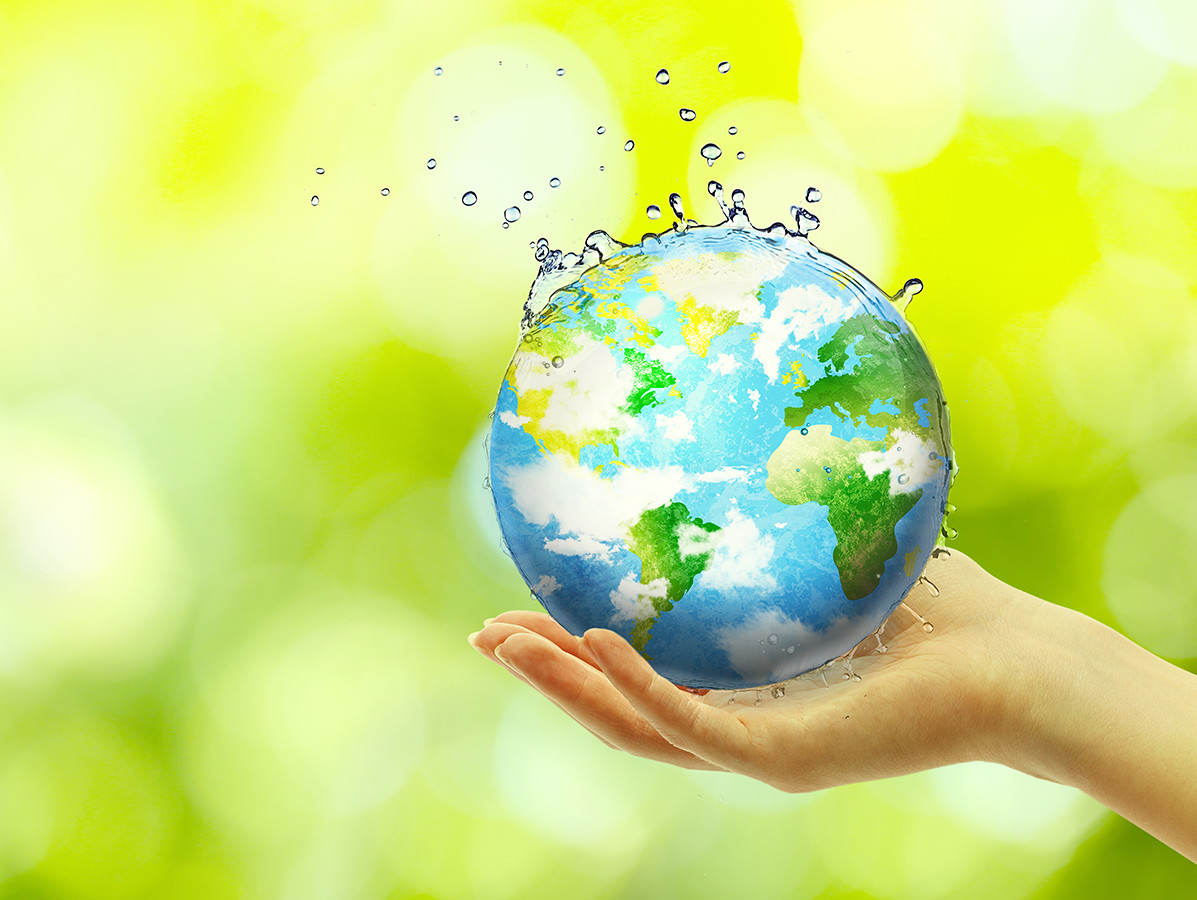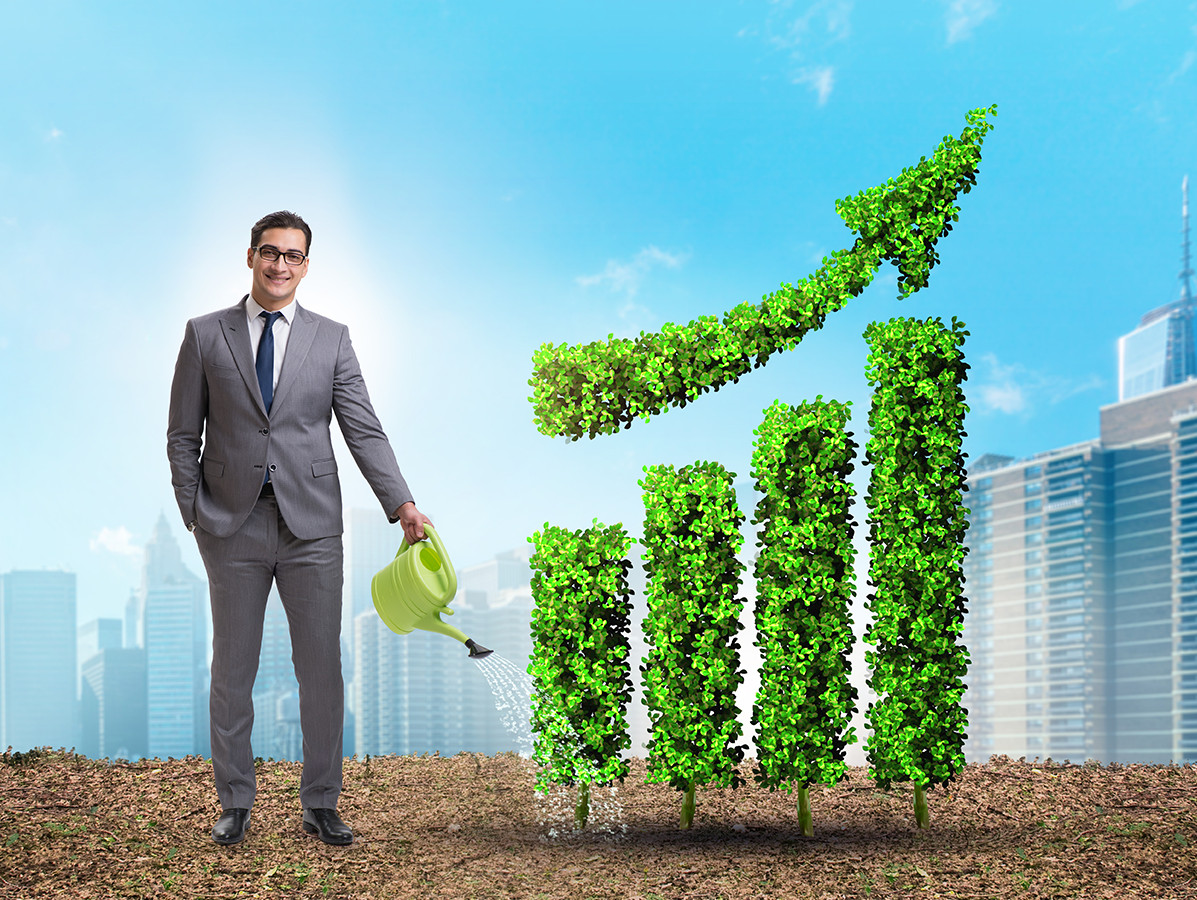
Heterotrophic cultivation instead of autotrophic cultivation. A sense of responsibility from 'grass to glass'. Specially developed water saving systems; sustainable entrepreneurship is widely embraced and implemented in the food industry. What is the current state of affairs?
The experts Sjoerd van Sprang (Manager Sustainability & Innovation Communications - Global Corporate Communications at FrieslandCampina), Eveline Bruins (Key Account / Area Sales Manager - Benelux at Blücher) and Josien Croezen (Product Specialist at Duplaco) provide insight into and their view of sustainable entrepreneurship on the basis of 6 questions.
Sjoerd van Sprang: "From grass to glass, at Friesland Campina we can sense and take our responsibility in all kinds of areas. We make crucial nutrients available to a growing world population and reduce greenhouse gas emissions. We do this by switching to cleaner and renewable energy sources, among other things. These are often generated by our members/dairy farmers. Within our company there are clear rules for a sustainable purchasing policy of raw materials, with respect for people, animals and nature".
Eveline Bruins: "Blücher (part of the Watts group) is a manufacturer of stainless steel drainage systems. The great thing about stainless steel is that it is 100% recyclable, which is exactly what we do. The packaging for the pipes and gutters has an FSC quality mark. Of course, waste is separated in the factories, but we also pay attention to small things. For example, we do not use plastic cups. Water is a scarce commodity, so we do our very best to save water wherever, however and whenever we can. Within the Watts group, for example, we have developed various water saving systems. Daily monitoring and an intensive water reduction plan are in place. At Blücher, we take it one step further: with our HygienicPro gutters, a company saves between 40 to 90% water".
Josien Croezen: "Duplaco B.V. implements sustainable entrepreneurship in two ways: through our cultivation method and through the nature of algae as a product. To start with the first; we grow in a heterotrophic way. As a result, we produce a lot of algae on a small surface area with a low energy load. Also the amount of water we have to use is - compared to the other production methods - very low. Finally, there is the possibility of eventually switching to residual flows to make the process even more sustainable. The nature of algae as a product is also sustainable. Think of the Chlorella algae that we produce locally, which has an unusually rich nutritional profile".

Sjoerd van Sprang: "That lies in our purpose (nourishing by nature) and our cooperative character to work together for the long term to provide good food thanks to nature. That's why we also have to deal well with the people who make it and the nature we use".
Eveline Bruins: "Care and responsibility. With our expertise in water technology, we want to continuously improve the comfort, safety and quality of life for people all over the world. One of the ways we do this is through a sophisticated environmental management policy at the various Watts' locations. Globally, we provide access to clean and safe water and demonstrate overall community involvement by supporting various charities. For decades, we have been striving to give a helping hand to the communities that make our work so important".
Josien Croezen: "There is a transition from conventional foods to alternative, sustainable and nutritious foods. According to us, Duplaco micro-algae meet these requirements and can be used in vega(n) products. We want to play a role in this transition, so that both young and old can be assured of access to healthy food in the future".
Sjoerd van Sprang: "The quickly succeeding changes in rules and laws do not always make sustainability easy. What is required right now, and how much should we invest in it? That choice affects the remaining margin to invest in extra sustainability measures etcetera. Solutions can be found in cooperation and the sharing of insights. We are working to increase the earning capacity of our member dairy farmers, so that there is still room and appeal for sustainability".
Eveline Bruins: "It is not always possible to do everything we have in mind, for example for sustainable employability and retention of personnel. For example, it is against the law to offer employees free lunches, they have to pay a small contribution. Sometimes you have a nice idea, but it doesn't work. We have invested in all kinds of materials that our employees can use during breaks or just during working hours: from bicycles to rubber bands. In the beginning, these are popular attributes, but over time, the enthusiasm decreases. Still, it's important to stay inventive and come up with new things. It is never possible to satisfy everyone, but if you stay alert in what is possible and what you can help people with, you will come a long way. We are very committed to measuring our progress in health, safety and environmental management at all our sites. This applies to all of our 4,800 employees. We believe that the wellbeing and safety of our employees is essential in the workplace. Occupational injury and illness are preventable, and activities must be safe for everyone to carry out.
Josien Croezen: "Our cultivation could be made more sustainable by using residual streams, but unfortunately we haven't got that far yet. Barriers here are adapting our meticulous production system to the residual flows and obtaining residual flows with sufficient functionality for the algae. Think of low variation in useful nutrients, no contaminations, etcetera. Our plan is to continue to invest in research, so that we have sufficient knowledge and resources at our disposal to make our process more sustainable and to continue to guarantee the quality of the product".

Sjoerd van Sprang: "Credibility, reliability, a good reputation. These values pay off, among other things, in the interest of existing and new customers".
Eveline Bruins: "Talented, motivated and committed employees. Healthier people are happier, and happier people produce better results".
Josien Croezen: "Sustainability is at the heart of our company because of the product we produce and the way we do it. This means that we contribute to a healthier world for people and animals, in a way that we support".
Sjoerd van Sprang: "Sustainability is a crucial part of our business operations. So a wholehearted 'yes'!"
Eveline Bruins: "Yes. We continue to invest in our people and save resources wherever possible. There is no turning back. We just want to keep going."
Josien Croezen: "We, too, continue to build a sustainable future by making full use of the potential of microalgae. For the new production facility we are investigating how we can make more efficient use of residual heat. And if there is a solid production, other aspects will also be considered; such as the use of residual flows".
Sustainable entrepreneurship is hot, but there are many misconceptions about it: sustainable entrepreneurship and business economics would bite each other. The opposite is true: efficient and economical use of raw materials and energy leads to financial benefits and a healthier environment. And also to a better image.
It is not true that only large companies can operate sustainably. Sustainable entrepreneurship affects all core processes to a greater or lesser extent. Reducing C02 emissions, for example, can be achieved within every company. Research shows that organisations with an active CSR policy have higher labour productivity, less turnover and lower absenteeism due to illness.
Opportunities lie in all business processes:
Technical problems? Talk to universities, colleges and innovation centres. Innovation hubs can be found all over the country. Collect as much data as possible and use it to optimize business processes. Review all business processes and see where environmental saving measures are possible. Sometimes they are in an unforeseen area. Immerse yourself in subsidies. That takes some time and effort, but there is a lot of money lying around, waiting for a good idea.
Photos: Globe: ©Africa Studio/Shutterstock.com, Book: ©Ping198/Shutterstock.com, Graphic: ©Elnur/Shutterstock.com
Source: © Vakblad Voedingsindustrie 2020